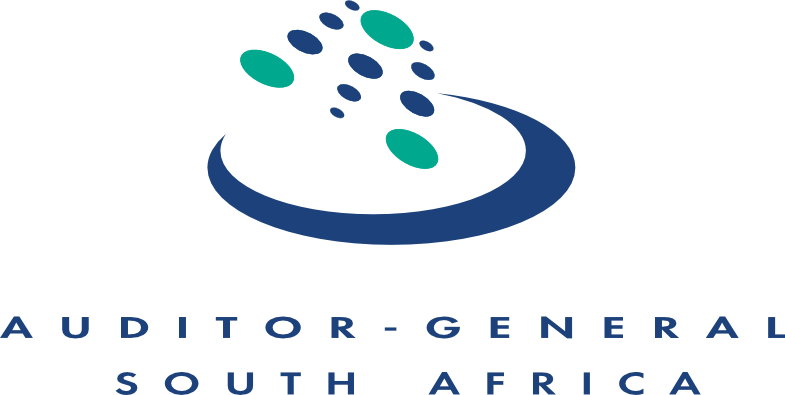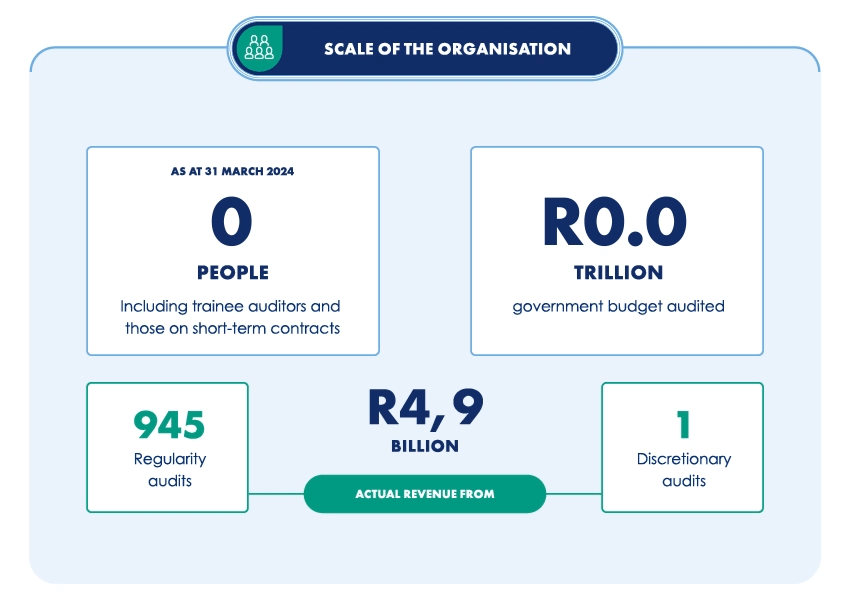Audit contracts awarded
As part of our business model, we outsource some of our audit work to supplement our own capacity. We refer to these firms that audit on our behalf as ‘contract work creditors’ (CWC). Our choice of outsourced partners reflects our capacity-building work with small to medium audit firms and the principles of transformation to develop, grow and advance black chartered accountants (CAs(SA)). We appoint these firms using a transparent selection process that considers their size, location, expertise and quality of audit work. Outsourced work includes pre-issuance reviews, regularity audits, information systems audits and experts to assist with our regulatory and performance audits.
1 Large firm – turnover of more than R50 million
Medium firm – turnover between R10 million – R50 million
Small firm – turnover between R0 million – R10 million
Enterprise and supplier development
Our enterprise and supplier development (ESD) programme aims to accelerate the growth and sustainability of small to medium, black-owned enterprises in the accounting and auditing industry. Internally, the programme has experienced significant growth, expanding from four beneficiaries in 2014 to 23 across all nine provinces by 2024 – with all beneficiaries advancing to become suppliers. Financial assistance, prioritised payments and quality audit work have contributed to the success of the programme. In addition to the increase in beneficiaries, the programme has also facilitated job creation and thus contribute to alleviating unemployment.
Over R300 million in CWC work was allocated to ESD firms during the 2020-25 tender cycle, supporting income growth and providing training opportunities. Additionally, four of the ESD firms we collaborate with have partnered with major audit industry players, underscoring the strength and benefit of our support.
As the current tender cycle concludes and as part of our 2024-25 focus, we are reassessing our end-to-end ESD strategy to identify more impactful ways of supporting black-owned firms. The allocation strategy has been effective over the years and has achieved its initial objectives but, internally, we have recognised the need for a refreshed approach that aligns with our #cultureshift2030 strategy.
Strategic risks and risk assurance model
These are the risks that could fundamentally hinder us from achieving our strategic objectives, hence they receive priority attention at the highest level. We identified and managed seven strategic risks during 2023-24.
The mitigations for the various risk indicators were implemented and rigorously monitored throughout the year. We are satisfied with the efforts to mitigate and the action that owners took to address exposure. Given that strategic objectives extend beyond the performance period, some mitigations will continue over the longer term and residual mitigations are rolled over into the next performance period.
While we assess risks continuously throughout the year, we formally evaluate risks annually by considering all environmental factors that could have an impact on us achieving the strategic goals that drive our #cultureshift2030 strategy.
Our capitals
The term ‘capital’ refers broadly to any resources that we use to deliver our mandate. Our capitals are therefore integral to our operational and strategic success. Their availability, quality and affordability could affect our long term sustainability and our ability to create value for ourselves and our stakeholders. It is therefore imperative that we maintain our capitals if we are to continue creating value.
Business and value-creation model
In aligning our business model to stakeholder value, we use inputs (our capitals) and transform them using our internal business processes (including people, processes and systems) to produce services and products that create value for the organisation and its various stakeholders.
The value creation model depicts how the AGSA creates stakeholder value through its strategy and products, and the internal systems and processes that support both of these.
In illustrating our value creation model, we outline the following:
- Our strategic goals, as defined in our #cultureshift2030 strategy
- Our capitals and how we leverage them to support each strategic goal
- Our internal configuration from a people, processes and systems perspective that helps us to deliver on our key products
- Define what those key products are
- Who uses them.
Our model unpacks the value our key stakeholders derive from our products and engagements on their production and delivery.
Value of our audit work
The true value and relevance of our audit work is in what our reports allow auditees and other stakeholders to do based on the information in the reports. An outline of this value includes the following:
Transparency created by factual auditing and reporting (conducted without fear or favour) helps to strengthen public institutions and our democracy, both of which are key parts of our institution’s mandate.



